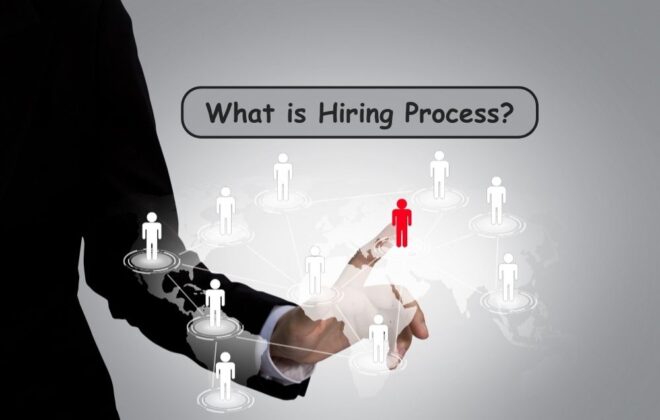
HR Outsourcing Services: Enhancing Efficiency and Reducing Costs

Table of Contents
Human Resources (HR) is an integral part of any organization, responsible for essential functions such as payroll management, benefits administration, compliance, recruitment, and employee relations. Traditionally, companies managed these HR functions in-house, which often stretched their resources and posed various challenges. However, an increasing number of businesses are now turning to HR outsourcing services to streamline their operations and realize significant cost savings.
HR outsourcing involves transferring specific HR tasks or entire HR functions to external service providers who specialize in HR management. These external providers offer advanced technology and expert knowledge that might be costly or complex for individual businesses to develop on their own.
By engaging HR outsourcing services, companies can leverage these benefits to focus more on their core business functions while leaving HR management to experienced professionals. This approach is not only about cost reduction but also about enhancing operational efficiency and achieving better business outcomes.
In this blog, we will explore the benefits of HR outsourcing, delve into the cost-effectiveness of HR outsourcing, identify key HR functions to outsource, and offer guidance on choosing the right HR outsourcing partner. By understanding these elements, businesses can make informed decisions about utilizing HR outsourcing services to enhance efficiency and reduce costs effectively.
Benefits of HR Outsourcing
1. Access to Expertise and Advanced Technology
One of the primary advantages of HR outsourcing is the access to specialized expertise and advanced technology. HR outsourcing services bring a wealth of knowledge and experience that may not be available in-house. These providers are equipped with the latest HR management systems and tools, which are often expensive for individual companies to invest in directly.
By outsourcing HR functions, businesses can benefit from these advanced technologies without the need for substantial capital investment. For example, payroll outsourcing services utilize sophisticated systems to manage employee compensation, tax calculations, and compliance with wage regulations. This not only ensures accuracy but also enhances efficiency in handling complex HR tasks.
Additionally, outsourcing partners are well-versed in compliance with labor laws and regulations, reducing the risk of legal issues and penalties. Their expertise helps businesses stay updated with the latest regulatory changes, ensuring that HR practices are always in line with current laws. This access to expert knowledge and technology supports better decision-making and operational efficiency.
2. Improved Operational Efficiency
Another significant benefit of HR outsourcing services is the improvement in operational efficiency. Outsourcing providers streamline HR processes such as payroll processing, benefits administration, and recruitment, making them more efficient than traditional in-house methods.
For instance, payroll outsourcing services utilize automated systems to handle routine payroll tasks, reducing the time and effort required to process employee payments. This automation minimizes errors and ensures timely payments, contributing to higher employee satisfaction and fewer compliance issues. Similarly, benefits administration outsourcing can handle complex tasks like benefits enrollment, claims processing, and employee communication, all of which are managed efficiently by experienced professionals.
By delegating these functions to external experts, internal HR teams are freed from routine administrative tasks and can focus on more strategic initiatives, such as talent management and organizational development. This shift in focus enhances overall productivity and contributes to the business’s success.
3. Enhanced Focus on Core Business Activities
HR outsourcing enables businesses to redirect their focus and resources toward core business activities. Internal HR teams, relieved of routine administrative duties, can concentrate on strategic areas that drive business growth and innovation.
For example, with payroll and benefits administration managed by an outsourcing provider, HR professionals can focus on developing and implementing strategies for employee engagement, training programs, and organizational culture. This enhanced focus on core activities helps businesses drive growth, improve employee satisfaction, and achieve their strategic objectives more effectively.
Furthermore, outsourcing provides businesses with the flexibility to adjust HR services according to their needs. During periods of growth or change, outsourcing partners can scale their services to meet increased demand, while during slower periods, businesses can reduce services as needed. This adaptability supports the efficient allocation of resources and ensures that HR operations align with the company’s evolving needs.
4. Scalability and Flexibility
Scalability and flexibility are key benefits of HR outsourcing services. As businesses grow or experience fluctuations in workforce size, outsourcing providers can easily adjust their services to match changing requirements.
For instance, during a period of rapid expansion, outsourcing partners can manage increased recruitment needs and handle a higher volume of HR transactions. Conversely, if the business faces a downturn, outsourcing services can be scaled back accordingly. This flexibility ensures that businesses receive the appropriate level of HR support without the need for significant internal adjustments.
This adaptability not only helps businesses manage their HR needs more efficiently but also reduces the risk of overextending resources. By leveraging the scalability of outsourcing providers, companies can maintain optimal HR support while effectively managing costs.
5. Risk Management and Compliance
Managing compliance with labor laws and regulations is a critical aspect of HR that can be complex and challenging. HR outsourcing services help mitigate risks associated with non-compliance by ensuring that HR practices adhere to legal and regulatory requirements.
Outsourcing providers often have dedicated compliance teams that stay updated on the latest changes in labor laws and industry regulations. They implement necessary adjustments to maintain compliance and conduct regular audits to ensure that HR practices align with legal standards. This proactive approach helps businesses avoid costly fines, legal disputes, and potential damage to their reputation.
By outsourcing compliance and risk management, businesses can focus on their core operations while ensuring that their HR practices remain compliant with current laws and regulations. This not only protects the business from legal risks but also supports a stable and efficient HR operation.
Cost-Effectiveness of HR Outsourcing
The cost-effectiveness of HR outsourcing is a major factor driving businesses to consider this approach. Managing HR functions in-house can be expensive, especially for small and medium-sized enterprises (SMEs). Costs associated with hiring, training, and maintaining an internal HR team, along with investing in HR technology, can quickly accumulate.
HR outsourcing offers a more cost-effective alternative by providing access to expert HR management at a fraction of the cost of maintaining an in-house department. Outsourcing providers typically operate on a subscription or service fee basis, which allows businesses to manage their HR expenses more predictably and efficiently. This model eliminates the need for substantial upfront investments in HR technology and reduces ongoing administrative costs.
Choose the best HR outsourcing Services Now!
Flexible HR Outsourcing for Your Dynamic Business Needs Today!
Key HR Functions to Outsource
1.Payroll Administration
Payroll administration is a critical HR function that can be efficiently managed through outsourcing. Payroll Management involves managing employee compensation, tax withholdings, benefits contributions, and compliance with wage regulations. These tasks can be complex and time-consuming, making them ideal candidates for outsourcing.
Outsourcing payroll administration ensures that these functions are handled accurately and efficiently by experts. Providers use advanced payroll systems to process transactions, track employee hours, and manage tax filings. They also stay updated on changes in tax laws and regulations, ensuring compliance and minimizing the risk of errors or legal issues. By outsourcing payroll, businesses can reduce administrative burdens, avoid costly mistakes, and ensure timely and accurate payments to employees.
2.Benefits Administration
Benefits administration is another key HR function that can be effectively outsourced. This function involves managing employee benefits programs such as health insurance, retirement plans, and other perks. Benefits administration can be complex, requiring expertise in plan management, regulatory compliance, and employee communications.
Outsourcing benefits administration allows businesses to leverage the knowledge and resources of specialized providers. These providers handle tasks such as benefits enrollment, claims processing, and communication with employees. They also ensure compliance with benefits regulations and manage any issues that arise. By outsourcing benefits administration, companies can offer competitive benefits packages to employees while reducing administrative costs and ensuring compliance.
3.Recruitment and Talent Acquisition
Recruitment and talent acquisition are critical functions for attracting and hiring the right talent. Outsourcing these functions can help businesses streamline their hiring processes and access a broader pool of candidates. Recruitment outsourcing providers offer expertise in sourcing, screening, and selecting candidates, as well as managing the recruitment process.
By outsourcing recruitment, businesses can benefit from the provider’s networks, resources, and advanced applicant tracking systems. These tools improve the efficiency of the hiring process and help identify and engage top talent. Outsourcing recruitment also reduces the time and effort required for hiring, allowing businesses to focus on other important aspects of their operations.
4.Compliance and Risk Management
Compliance and risk management are essential for ensuring that HR practices adhere to legal and regulatory requirements. Outsourcing this function helps businesses stay updated on changes in labor laws and industry regulations, reducing the risk of non-compliance.
HR outsourcing services provide expertise in managing compliance issues, conducting audits, and implementing best practices. These providers help businesses navigate complex regulatory environments and maintain compliance with federal, state, and local laws. By outsourcing compliance and risk management, companies can minimize legal risks and ensure that their HR practices are in line with current regulations.
How to Choose the Right HR Outsourcing Partner
1.Evaluate Expertise and Experience
When selecting an HR outsourcing partner, evaluating their expertise and experience is crucial. Look for providers with a proven track record in delivering high-quality HR services. Consider their experience in your industry and their ability to handle the specific HR functions relevant to your business.
Assess the provider’s qualifications, certifications, and client references. A reputable HR outsourcing partner should have a strong understanding of HR best practices, compliance requirements, and industry standards. By choosing a partner with the right expertise, you can ensure that your HR functions are managed effectively and in alignment with your business goals.
2.Consider Technology and Tools
The technology and tools used by an HR outsourcing provider play a significant role in the effectiveness of their services. Evaluate the provider’s HR management systems, software, and technology infrastructure. Ensure that their tools are up-to-date, secure, and capable of meeting your business’s needs.
A provider with advanced technology can offer efficient and accurate HR services, including payroll processing, benefits administration, and recruitment. Consider how the provider’s technology integrates with your existing systems and whether it supports your business’s growth and scalability.
3.Assess Service Levels and Support
Service levels and support are critical factors in choosing an HR outsourcing partner. Evaluate the provider’s service offerings, response times, and customer support capabilities. Ensure that they offer the level of support you require and that their services align with your business’s needs.
Consider the provider’s approach to customer service, including their communication methods, availability, and responsiveness. A reliable HR outsourcing partner should provide timely and effective support, addressing any issues or concerns that may arise.
4.Review Pricing and Contracts
HR outsourcing prices can vary depending on the services provided and the complexity of your HR needs. Review the pricing structure and contract terms offered by potential outsourcing partners. Ensure that the pricing is transparent and that there are no hidden fees or additional costs.
Consider the flexibility of the contract terms, including the duration, renewal options, and termination clauses. A well-structured contract should align with your business’s requirements and provide clarity on the scope of services, performance metrics, and service level agreements.
Conclusion: Maximizing Efficiency with HR Outsourcing
HR outsourcing services offer a powerful solution for businesses aiming to enhance efficiency and reduce costs. By delegating HR functions to specialized providers, companies can access expertise, advanced technology, and improved operational efficiency. The advantages of HR outsourcing extend beyond cost savings to include better focus on core business activities, scalability, and enhanced risk management.
The cost-effectiveness of HR and staff augmentation outsourcing is a key factor driving its adoption. It allows businesses to manage their HR functions more efficiently while reducing expenses associated with maintaining an internal HR department. Key HR functions such as payroll administration, benefits administration, recruitment, and compliance can be effectively managed by outsourcing partners, leading to better outcomes and significant cost savings.
Tags In
Related Posts





